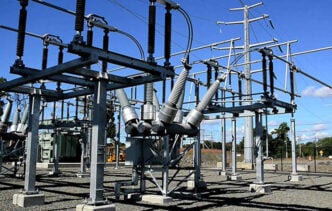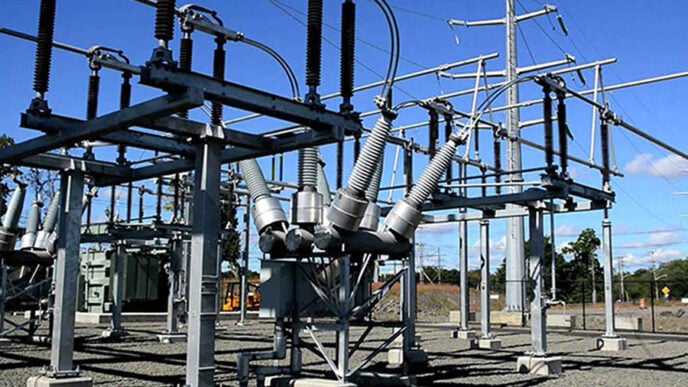A Catalyst Disguised as Crisis
Nigeria stands at a pivotal crossroads, not just economically, but ideologically. The removal of fuel subsidies in 2023 caused significant hardship across households and industries. Over two years later, while Nigerians have adjusted to new fuel prices, the broader ripple effects, especially on food costs and commerce continue to bite. Yet within this disruption lies an extraordinary opportunity: the chance to redefine Nigeria’s mobility future, reclaim our economic sovereignty, and accelerate industrial transformation through electric vehicle (EV) adoption.
The fuel subsidy removal, while necessary laid bare the structural vulnerabilities of Nigeria’s oil-dependent transport system. Fuel prices have pushed households and businesses into survival mode. Everyone is feeling the heat.
But this pain reveals a deeper truth: the fossil-fuel status quo is no longer tenable. In its place, a new path is emerging, one that aligns economic resilience with sustainability, job creation, and energy independence.
Advertisement
More Than a Trend
EVs are not just cleaner vehicles, they represent a strategic response to the core economic challenges Nigeria faces.
- For consumers, EVs offer long term savings as fuel costs climb.
- For cities like Lagos and Abuja, they promise reduced pollution and lower healthcare costs.
- For the nation, they offer a way to cut reliance on imported petroleum, save foreign exchange, and meet our climate commitments.
EV adoption also directly supports Nigeria’s Nationally Determined Contributions (NDCs) under the Paris Agreement, particularly the goal of reducing transport sector emissions and increasing energy efficiency across major cities.
Advertisement
It is also important to recognise that the environmental benefits of EVs depend heavily on the energy mix powering them. Without increasing renewable generation on the national grid, we risk shifting emissions from tailpipes to smokestacks. EV deployment must go hand-in-hand with Nigeria’s renewable energy strategy, ensuring that as we electrify transport, we also decarbonise our electricity supply.
Driving Industrial Growth and Innovation
Electric mobility can unlock entirely new industries. Local EV assembly, battery production, and component manufacturing can create thousands of jobs across sectors. Grid infrastructure upgrades, charging stations, software platforms, and maintenance hubs represent further opportunities for economic stimulation.
Nigeria can position itself as a regional hub for electric mobility through technology transfer and regional export under AfCFTA. This shift will generate employment across construction, tech, and engineering while creating demand for logistics, financial services, insurance, and software development.
Advertisement
Powering Small Businesses and the Informal Economy
Nigeria’s EV transition is not just a macroeconomic opportunity, it has the potential to transform livelihoods at the grassroots level.
Small businesses, informal transport operators, and everyday entrepreneurs stand to gain significantly from this shift. For many who rely on fuel intensive operations, from delivery riders and keke drivers to market traders using logistics bikes, the cost of fuel is a daily burden. EVs offer a path to lower operational costs, greater stability, and ultimately, increased profit margins.
The recent VAT legislation, while postponed until 2026 has already signaled a shift in public sentiment. This “mini black swan” moment is nudging more consumers toward EVs, recognising that fuel costs will likely remain volatile and policy sensitive.
Advertisement
New micro business models will emerge:
- Mobile charging stations in underserved areas
- Battery swapping vendors
- EV repair technicians and parts resellers
- Local charging hubs hosted by fuel station owners or land-leasers
Advertisement
These hubs, especially if designed as informal, multi-use “charge and wait” spaces with food vendors, retail stalls, and rest areas could drive local economic activity and become new sources of Internally Generated Revenue (IGR) for local governments and state authorities.
More importantly, digital finance, leasing, and asset ownership models tied to EVs can bring more people into the formal financial system enabling credit histories, mobile payments, and micro-insurance.
Advertisement
This is not just a green revolution. It’s a livelihood shift waiting to happen, if we design for inclusion from the start.
Advertisement
Strategic Role of Stakeholders
The government must lead with decisive policy: Incentives for EV import and assembly, public procurement mandates, and infrastructure planning that treats charging stations as essential public assets.
This includes both public and private charging networks. Public infrastructure such as government funded highway charging corridors provides national reach and access equity. Meanwhile, private infrastructure deployed by businesses, real estate developers, and fleet operators enables rapid scaling through innovation and market responsiveness. Policies must distinguish between the two, offering tailored incentives and standards.
Local governments also have a key role to play, from allocating land for charging sites to piloting EV-only zones in high-density corridors.
Investors should act early to unlock first-mover advantages in an emerging sector. To support this, new financing pathways must emerge including bankable green investment instruments, blended finance models, and carbon credit-backed projects. These tools will be essential to bridge affordability gaps while supporting infrastructure buildout at scale.
The private sector has critical roles to play: Energy companies must ensure power reliability; telcos can enable fleet tech solutions; financiers must innovate around ownership models.
And most importantly, consumers must be educated, engaged, and empowered. When Nigerians experience EVs directly from price savings to smoother rides, demand will rise and innovation will follow.
A Platform for Transformation: EV Nigeria Expo 2025
This is why EV Nigeria Expo 2025 exists. More than a conference, it’s an ignition point. Held November 13th and 14th at Balmoral Event Centre, EVN Expo is where vision meets execution, a space where:
- Policymakers launch frameworks and incentives
- Manufacturers showcase products to real users
- Consumers test, compare, and understand options
- Financiers offer tailored purchase solutions
- Fleet operators and public stakeholders find implementation partners
EVN Expo bridges the gap between early adoption and mainstream movement. With zones for test drives, live demos, and financing support, we welcome stakeholders ready to co-create this future and build the blueprint for Nigeria’s clean mobility transformation.
But we must act!
We must build now, not later. Invest now, not after others lead. And commit now, not just in policy, but in partnerships.
EV Nigeria Expo 2025 is where this shift begins. Join us in shaping the future of Nigerian transportation.
The time to participate is now.
Abiola Adekoyejo is the Convener, EV Nigeria Expo
Views expressed by contributors are strictly personal and not of TheCable.












